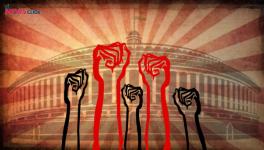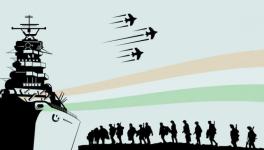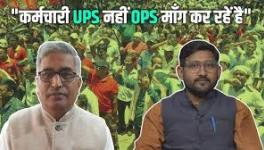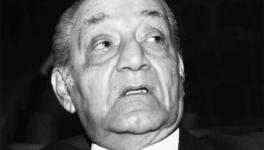‘We Are Reliving the Tragedy of Karbala in Kashmir’
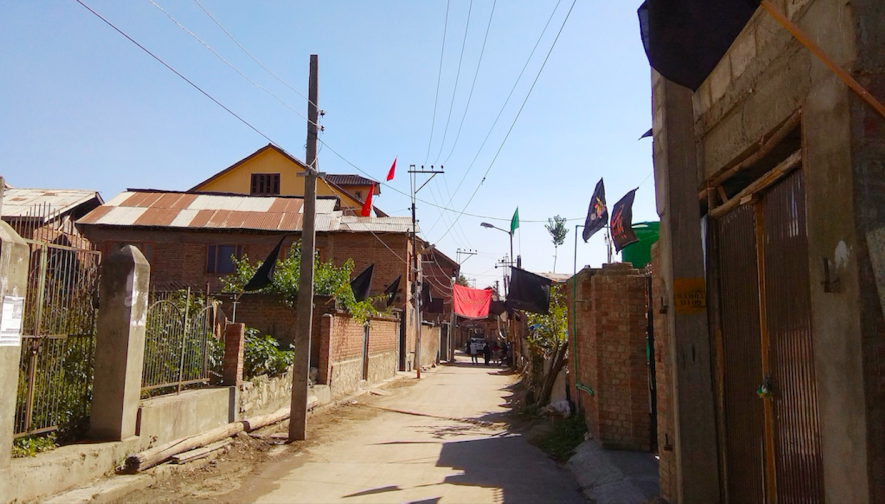
Srinagar: The Shia population in Kashmir say they are ‘reliving the tragedy of Karbala’ due to the government-imposed blockade, preventing them from taking out Muharram processions across the valley. The situation, they say, is reminiscent of the siege that resulted in the annual Muharram commemoration that Shia Muslims observe devotedly.
Severe restrictions have been imposed again since Sunday, September 8, to thwart Muharram processions across Kashmir. Police and Central Reserve Police Force (CRPF) personnel have laid an elaborate cordon to restrict the movement of mourners, especially in the Shia dominated areas.
Mourners say the major processions were banned in the valley after armed rebellion erupted in the region in the late 1980s. Since then, however, the Shia community attempts to take out processions on the government designated routes in Srinagar but, the processions mostly happen within the limits of certain select localities.
“This time even that was not allowed. It is for the first time in my life we were not able to carry out our religious obligation which is absolutely painful. Both the state and the central government are using brute force,” 70-year-old Ghulam Hussain told NewsClick.
Also read: 4 Journalists Injured While Covering Muharram Procession in Srinagar
Hussain is a resident of Zadibal locality in Srinagar, a Shia dominated area. Tens of thousands of mourners gather in the locality between 7th and 10th Muharram (the first month of Islamic calendar) to participate in the mourning. This time, all the entry and exit points of the area have been sealed and no free movement is allowed even within the vicinity of the sealed area.
“The police and CRPF have occupied all roads even deep inside the locality,” Hassan adds.
The annual Muharram processions are held in the first month of Islamic calendar across the Shia world to commemorate the death of Prophet Muhammad’s grandsons Imam Hussain and Imam Hassan and their companions in the city of Karbala (modern Iraq).
“We prepare for this day to commemorate the tragedy of Karbala. We organise blood donation camps but all of that has been damaged, our movement has been restricted to our homes. This is a second Karbala happening in Kashmir,” a resident says.
The residents also allege that they are facing provocation and humiliation at the hands of the J&K police present in the area. Tanveer Pathan, Zadibal area corporator, says what has hurt him the most is the provocation by the police on sectarian lines.
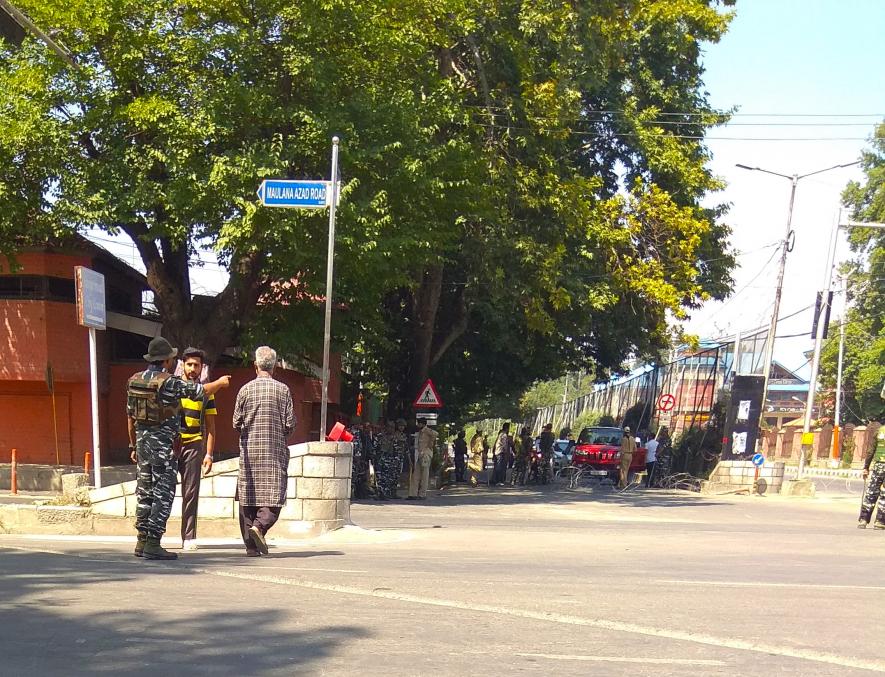
“The police abuse our women, misbehave with them. They call people names provoking us on sectarian lines. We were already under crackdown for a month, and now with the renewed restrictions we are facing double cruelty,” he says.
Not just the processions, the residents accuse, the police also interfere with their indoor mourning sessions, held during the late evening or in the night.
“We are mentally upset. Our faith is being targeted. Muharram has nothing to do with politics… It is our faith to observe mourning during this period but even that is not being allowed,” a Shia resident says.
Earlier last week, clashes broke out between police and mourners in the Donipora locality and Gasiyar Chowk resulting in the injuries of several followers. Many people from the locality alleged that they were also beaten up in the area, while several cars and motorcycles, parked on roads, were broken even after the clashes ended.
Zadibal area is one of the important localities where most Shia mourners converge and carry out their Muharram sessions. The main congregation, according to people here, happens inside the shrine of Mir Shams ud din Iraqi, a 16th century scholar and patron saint of Shia Muslims in Kashmir. The mourners gather in the shrine on all days till late night to observe the commemoration.
Clashes had broken out in the vicinity of the shrine, following which many residents including women were injured, causing tension in the area. Apart from the shrine, another congregation happens inside the house of local Shia scholar Syed Aijaz Rizvi. The cleric, according to peopl, was arrested by police last month before the Muharram days began.
Pathan says the ‘police highhandedness’ can result in long term problems in the city. “We know what suppression has resulted in South Kashmir. If the people living in the city also face similar humiliation, we know which direction it will lead us into. The city will be like South Kashmir,” Pathan says.
“How long can they control people with batons,” he adds.
Restriction in the wake of Muharram also coincides with the month-long clampdown in Kashmir imposed by the government after the Centre unilaterally abrogated Article 370 and downgraded the status of Jammu and Kashmir state into two union territories. Day time restrictions were eased a week ago in almost all areas before the restrictions were renewed. The mobile and internet services continue to remain disrupted leading to a massive communication blockade in the erstwhile state. Situation continues to remain tense across the Valley as people observe shutdown as opposed to the government restrictions to protest the abrogation of Article 370.
Also read: Wakf Employees Arrested in Gulmarg’s Baba Reshi Sufi Shrine
Residents of Imam Bada locality of Hasan Abad, another Shia dominated area, also witnessed massive clashes in the wake of Muharram processions on Saturday, September 7, following which scores were injured as police and CRPF fired tear-gas canisters and pellet shots on the mourners.
Shia Muslims dress mostly in black during the Muharram days as they remember Karbala tragedy. This time owing to the restrictions, residents say, many boys have been detained for wearing black shirts.
“16 boys in our locality and adjacent areas have been arrested, some of them even on charges of wearing black shirts,” a resident of Hasan Abad says.
The residents of Hasan Abad also allege that police personnel have been using force and also abused the women in the locality.
“This is for the first time we are witnessing such a crackdown. But also, this time we have realised the police has become deeply prejudiced against us and the way they abuse our women is disturbing,” another resident says.
Shia mourners insist Muharram processions are different from the political protests. “We are also part of the larger protest but that is political. Muharram has nothing to do with that. Once these days are over, the protest will continue,” a resident of Hasan Abad says.
Also watch: Biggest Lockdown in the History of Kashmir
The 10th day of Muharram called the Day of Ashura marks the end of mourning and is the most significant among the days. The government, however, is likely to put stringent measures to prevent any demonstration or assembly of people, as they fear that it can turn into an “anti-India” demonstration. The curfew, for now, will continue till Tuesday to avoid any law and order situation.
People from the community are, however, upset that they will not be allowed on this important day as well.
“If they can provide security for lakhs of Amarnath pilgrims visiting the valley why are we facing a clampdown,” a local of Hasan Abad questions.
Get the latest reports & analysis with people's perspective on Protests, movements & deep analytical videos, discussions of the current affairs in your Telegram app. Subscribe to NewsClick's Telegram channel & get Real-Time updates on stories, as they get published on our website.















